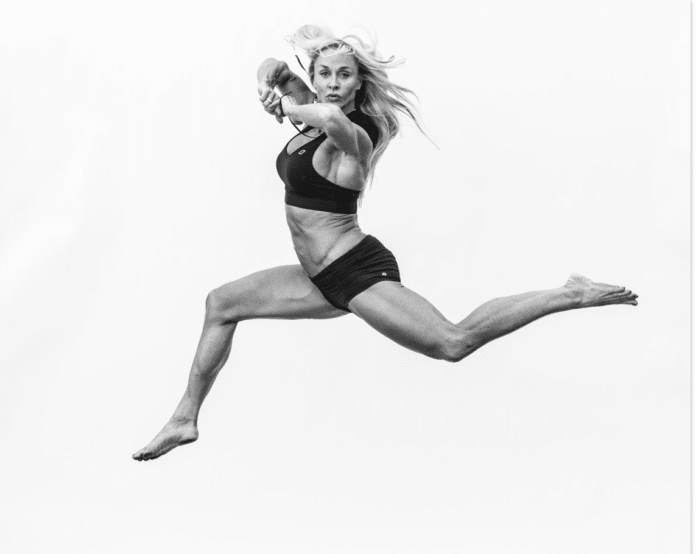Time to Start Thinking About Bone Health
As we head into middle age and beyond, we start to be confronted by health issues that we probably didn’t think much about when we were younger. One of these issues/conditions is the thinning of our bones, which for some people, can become osteoporosis.
Osteoporosis or osteopenia affects around fifty-five percent of Americans aged 50 and over. This number continues to rise. In Australia, statistics show that there are one third more women with osteoporosis than men. Globally, one in three women and one in five men (50+) will experience an osteoporosis-related bone fracture. Looking at just these few statistics shows why a goal to maintain or increase bone density is very important. If you are over 50, it’s something you really should be considering.
Why Do Bones Get Weaker as We Age?
Our bones are not only the solid structure our bodies are built around; they also store calcium and other minerals. We also have calcium circulating in our blood. This circulating calcium is used in muscle contractions, blood clotting, regulating heartbeat, fluid balance. It’s also used in our neurological system, and for building strong teeth and bones. The amount of circulating calcium is very tightly controlled to keep everything properly functioning.
Calcium: Too Much or Too Little. Both Can Cause Problems
Dietary calcium or the calcium in our bones can be called on to maintain the correct levels in our blood. Our bones are continually remodeled, with calcium being taken and replaced to maintain blood calcium levels. When overtime, more calcium is taken than replaced, our bones become weaker and more prone to fracture.
The loss of calcium from our bones caused by advancing age and menopause can put us at a higher risk of fracture. It’s very important to be aware of bone health when you are younger. Having a higher bone density before reaching menopause can lower the risk of developing osteoporosis. Having a diet high in calcium and doing the right type of exercise can make a big difference even if you haven’t thought ahead. So it’s never too late to make some healthy changes!
So, How Much Calcium Do We Need?
The Dietary Reference Intakes in the USA recommend that women aged 51 – 70 have 1200mg of calcium daily, and men in this age group have 1000mg. For people aged 71 + the recommendation is 1200mg for both women and men. The recommendation in Australia is only slightly different, instead of 1200mg for women aged between 51-70 the recommendation is 1300mg
It’s best to get your calcium intake from dietary sources rather than supplements if possible. Dairy products are among the best dietary source of calcium. Just 1 cup of skim milk, 200ml of low-fat Greek yogurt and 40g of cheese will give you 937mg of calcium. Add to that 100g of canned sardines (with bones), and you’re over the 1200mg RDI with a total of 1477mg of calcium.
Vitamin D is Also Instrumental for Bone Health
Vitamin D is involved in regulating the amount of calcium in our blood. It does this by enhancing calcium absorption from the gastrointestinal tract and reabsorption from our kidneys. We can produce vitamin D in our body from interactions between sunlight, and our skin, or we can get limited amounts from dietary sources (fortified milk and other fortified foods as well as from some animal products). If you for one reason or another you don’t get much time in the sun, then it might be worth talking to your doctor. They may do a blood test to establish your vitamin D level.
Specific Exercises Build Stronger Bones
Although doing any form of exercise is a good thing, if your goal is to get stronger bones, you need to pick the right type of exercise. For strong bones, some forms of exercise are better than others. Like our muscles adapt to lifting weights by getting stronger, our bones adapt to stress we put them under as well.
The type of exercise that strengthens our bones are things like resistance training (lifting weights), jogging/running and sports like tennis or basketball. These activities put a load on our skeleton through either lifting or holding weight or by our bones absorbing stress caused by the impact from running and jumping activities, helping to stimulate mineralization.
Exercises like swimming and bike riding, however, offer very little in the way of stress to our skeleton. That doesn’t mean you shouldn’t do these exercises; they are still great for your health and fitness and well-being in other ways.
Each Body Is Different – Tailor Your Plan
You are probably thinking; this is where I would give you a specific exercise plan that would help you maintain or improve your bone density. I wish it were that easy! There are just too many differences between each individual. For example, things like pre-existing health conditions, level of experience at the types of exercise I mentioned earlier, and availability of equipment for some types of exercise.
If you are serious about improving your bone health, I would suggest you start by talking to your doctor. All going well, they’ll give you the all-clear to start an exercise plan. They may recommend an allied health specialist suited to you. Make sure to search out a good exercise physiologist or fitness specialist with experience in exercise for bone health to guide you toward strong, healthy bones.
If you would like some help or advice from me, you can contact me through the link below. I would love to be able to assist you.
p (03) 9813 5020


